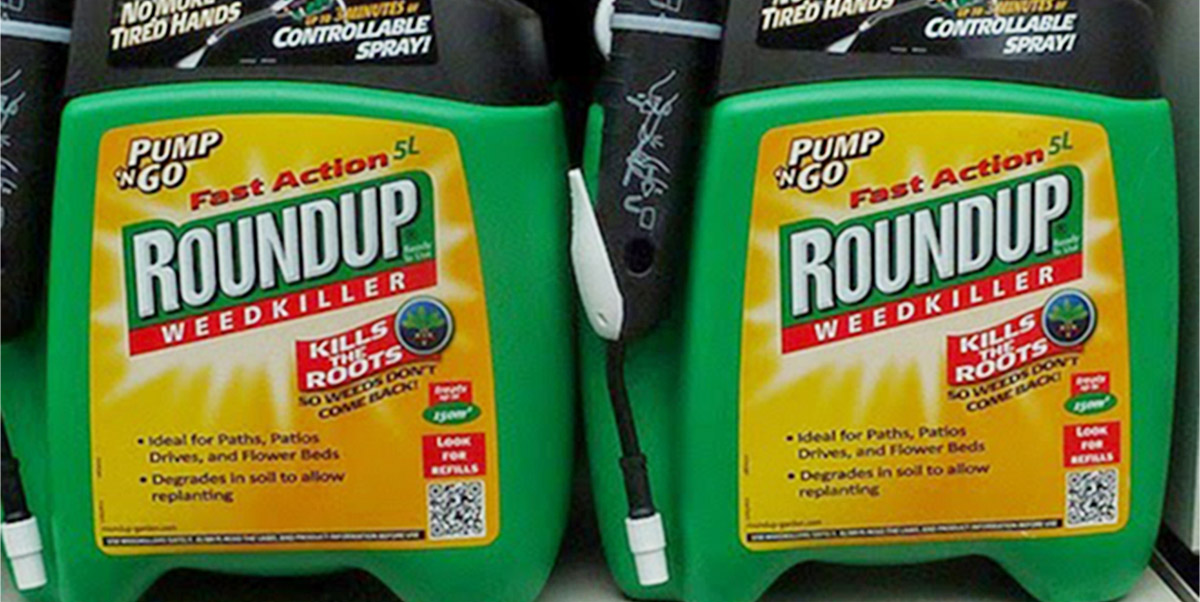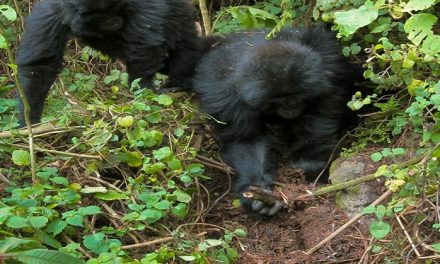(Note from Erin: I’m beyond frustrated that despite everything we know about the dangers of glyphosate, we still have to have these conversations. I cannot wait until the day that Big Ag/Pharma Monsanto is forced to stop selling Roundup (with the active ingredient glyphosate). But, until that happens, we will continue to report on the damage Monsanto does to people, animals, and the planet.)
DeWayne Johnson, 46, is about to make history by becoming the “first person to take the global seed and chemical company to trial on allegations that it has spent decades hiding the cancer-causing dangers of its popular Roundup herbicide products.”1
RELATED STORY:
Johnson, who had a job as a groundskeeper for the Benicia Unified School District, routinely applied Monsanto’s herbicides to school properties from 2012 until at least late 2015. Before his cancer diagnosis in August 2014 he was healthy and active. However, his body has been ravaged by non-Hodgkin lymphoma and in a January deposition, “Johnson’s treating physician testified that more than 80% of his body was covered by lesions, and that he probably had but a few months to live.”2
Just last week Judge Curtis Karnow issued an order that cleared the way for jurors on the case to consider both the scientific evidence related to what caused Johnson’s cancer AND allegations that the company “suppressed evidence of the risks of its weed killing products.”3
The trial is set to proceed and the jury will be allowed to consider punitive damages. We are sending DeWayne all the supportive good thoughts we can muster in both is battle against cancer and Monsanto.
Speaking about the case filed in San Francisco county superior court, judge Karnow wrote, “The internal correspondence noted by Johnson could support a jury finding that Monsanto has long been aware of the risk that its glyphosate-based herbicides are carcinogenic … but has continuously sought to influence the scientific literature to prevent its internal concerns from reaching the public sphere and to bolster its defenses in products liability actions. Thus there are triable issues of material fact.”4
RELATED STORY:
To date around 4,000 plaintiffs have sued Monsanto alleging exposure to Roundup caused them or their loved ones, to develop non-Hodgkin lymphoma (another case is scheduled for trial in October, in St Louis, Missouri):
“The lawsuits challenge Monsanto’s position that its herbicides are proven safe and assert that the company has known about the dangers and hidden them from regulators and the public. The litigants cite an assortment of research studies indicating that the active ingredient in Monsanto’s herbicides, a chemical called glyphosate, can lead to NHL and other ailments. They also cite research showing glyphosate formulations in its commercial-end products are more toxic than glyphosate alone. The International Agency for Research on Cancer (IARC) classified glyphosate as a probable human carcinogen in 2015.”5
It’s been repeatedly alleged (in Johnson’s lawsuit as well) that Monsanto falsified data and attacked legitimate studies proving just how dangerous the herbicide really is. And Johnson’s lawyer is looking forward to exposing those lies.
- Monsanto continues to “fiercely” deny all of these allegations, countering that it is not their products that are causing cancer
- They also argue that the IARC findings were wrong
- They also argue that any study finding glyphosate and glyphosate-based herbicides like Roundup to be potentially carcinogenic are wrong
- Monsanto points to findings by the EPA as their defense
RELATED STORY:
On their website Monsanto says,
“Glyphosate-based herbicides are supported by one of the most extensive worldwide human health and environmental effects databases ever compiled for a pesticide product. Comprehensive toxicological and environmental fate studies conducted over the last 40 years have time and again demonstrated the strong safety profile of this widely used herbicide.”6
Depending on how Johnson’s lawsuit plays out, there could be many more years of costly litigation and hefty damage claims. But if the evil giant is successful in defeating the challenge it could derail other cases and almost give the company a “pass.”
RELATED STORY:
We will watch and update you as the trial progresses.












